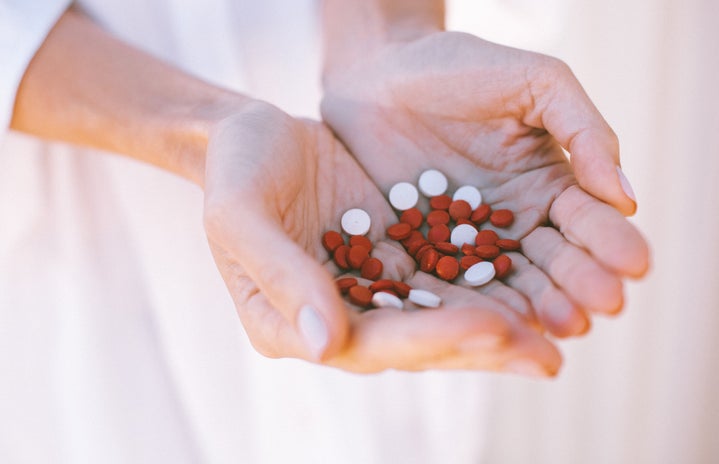As we enter the winter of 2021, it is clear that the covid-19 pandemic is still very much present. It is a different kind of ‘present’ to December last year, but the fact remains that the UK still has around 150 deaths and 40,000 cases reported daily. We have been adapting to life with covid, through preventative measures and vaccinations, through covid tests and zoom calls, and now there is a new development in the treatment of covid- a ‘covid pill’ to treat symptoms after they appear.
Lagevrio or molnupiravir, as it is known, is the first covid pill of its kind; antiviral medication that is orally taken after symptoms of covid begin to show. It is most effective when taken immediately, and it should be taken within five days of such symptoms, but clinical trials show that it can reduce the risk of hospitalisation by 50% in high-risk adults, and severely reduce the risk of death. In lagevrio’s trial, 14.1% of adults in the placebo group were admitted to the hospital, whilst only 7.3% of the group taking the pill were admitted. The latter group also had no deaths.
It has been developed by the US pharmaceutical Merck, Sharp and Dohme (MSD) and Ridgeback Biotherapeutics, and is specifically designed for high-risk adults. This category includes people at risk due to old age, heart problems, immunosuppression issues etc, and trials only occurred with unvaccinated people, although this has not been deemed a risk. The pill must be taken twice a day, for a course of five days, but unlike remdesivir, such a treatment can occur without any need for medical assistance or hospitalisation. Health Secretary Sajid Javid called Lagevrio a ‘game changer’ in combating covid, and although it has not shown success when treating patients who have shown symptoms beyond the recommended five days, Lagevrio is hoped to be the forerunner for further treatments for those currently hospitalised.
It has been approved for use in the UK by the Medicine and Healthcare products Regulatory Agency (MHRA), and Merck have applied for an Emergency Use Authorisation (EUA) from the FDA. FDA approval is unlikely to occur at least before December, since the FDA has called a panel of their outside experts to convene, but the US has still made an advance purchase of 1.7 million courses of the drug. The UK too has bought 480,000 courses of it, with the first delivery expected no earlier than mid-November, and it will be distributed via the NHS on a trial basis. The tablet is not yet expected to enter wide usage, and the NHS distribution will occur alongside a national study to gather additional data to ensure the safety of the medication.
The pill contains the chemical molnupiravir, which enters the bloodstream and attaches itself to RNA, stopping the covid virus from replicating itself, and thus stopping its spread through the body. It has not yet been reported to have any side effects, but tests are continuing to ensure that it does not cause any issues, particularly in the area of future RNA replication- namely pregnancy, and its effects on both a pregnant woman and their baby. Lagevrio should also be effective against future evolved strains of covid.
Merck, Sharp and Dohme is the first company to successfully create an antiviral pill, working from the basis of a design for a flu pill, but they are hardly the only pharmaceutical company working on it. Pfizer, Roche and Appili Therapeutics all have similar designs in the works, with Pfizer beginning trials on two different types of antiviral.
Molnupiravir could very well be a ‘watershed’ moment in the treatment of covid-19, but it must also be seen that it is a treatment and not a preventative measure. Vaccines remain the ‘first-line’ of defense in saving lives and limiting the spread of covid, and although the new pill will save lives, vaccinations remain the most important tool in the fight against covid.


